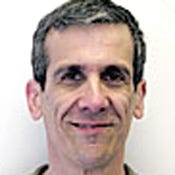First Data May Win As J.P. Morgan Chase, Bank One Integrate Technology Platforms
Bank One was to switch its issuing business from First Data to Synovus Financial Corp.'s TSYS unit, but given Chase's strong relationship with First Data, the TSYS deal is likely to be cancelled.

The blockbuster merger announced this month between J.P. Morgan Chase & Co. and Bank One Corp., which will create the second-largest banking company after Citigroup, brings together two old hands at the art of integration. Since joining Bank One in 2000, a good chunk of CEO Jamie Dimon's time has been spent integrating the disparate retail banking systems that Bank One had inherited from previous acquisitions. Integration isn't new for J.P. Morgan Chase, either; in a little more than a decade, it's successfully merged the technology platforms of its heritage banks: Chemical Bank, Manufacturers Hanover Trust, and Chase Manhattan Bank.
Dimon will oversee technology in the new company. Under a dual reporting structure, Austin Adams, Bank One's chief technology officer, and John Schmidlin, his counterpart at J.P. Morgan Chase, will report to Donald Layton, vice chairman of finance, risk, and technology; Layton will in turn report to Dimon. The integration of the companies' technology platforms will be worked out over time, executives say.
Among other things, the deal brings together two credit-card giants. Bank One has about $74 billion in card receivables and Chase has about $50 billion. Those volumes continue to grow. On Tuesday, Bank One acquired the private-label card operation of Circuit City Stores Inc., which has $1.8 billion in receivables.
One of the biggest winners from the merger is First Data Corp., which provides credit-card transaction processing for Chase's Chase Merchant Services and Bank One's Paymentech units. Analysts predict that Chase will absorb Bank One's merchant processing business. "It's quite a plausible outcome that Paymentech would be folded into Chase Merchant Services," says Andrew Jeffrey, a research analyst with Needham & Co.
In a statement, First Data said it has important relationships with both banks but that it's "too early to determine what this merger means for us."
First Data is likely to win back Bank One's card-issuing business, which it was scheduled to lose prior to the merger. Last year, Bank One announced it would switch its issuing business from First Data to Synovus Financial Corp.'s TSYS unit; the changeover was scheduled to occur by late 2005, with Bank One licensing and eventually owning the TSYS system.
Dimon had touted the move as a way to reduce expenses, but given Chase's strong relationship with First Data, the TSYS deal is likely to be cancelled, says Gwenn Bezard, senior analyst at Celent Communications, which tracks bank tech spending. A TSYS spokesman says the company has been told by Bank One to continue with the transition plans.
Bank One might renegotiate with TSYS at a later date, says Robert Dodd, an analyst at Morgan Keegan. The TSYS system is "the most technologically-advanced card-processing platform," he says, so Bank One might pause before jettisoning it entirely.
The merger will have no immediate impact on First Data's online debit-processing business; it had already agreed to divest the NYCE debit network in return for obtaining the Justice Department's approval for its merger with Concord EFS, through which it will acquire the Star System debit network, the nation's largest. J.P. Morgan Chase uses NYCE. Bank One had previously decided to switch from Star to Visa's Interlinq debit network, though Dodd says the merger leaves open the possibility that Bank One might stay with Star in deference to Chase and First Data.
About the Author(s)
You May Also Like
How to Amplify DevOps with DevSecOps
May 22, 2024Generative AI: Use Cases and Risks in 2024
May 29, 2024Smart Service Management
June 4, 2024







